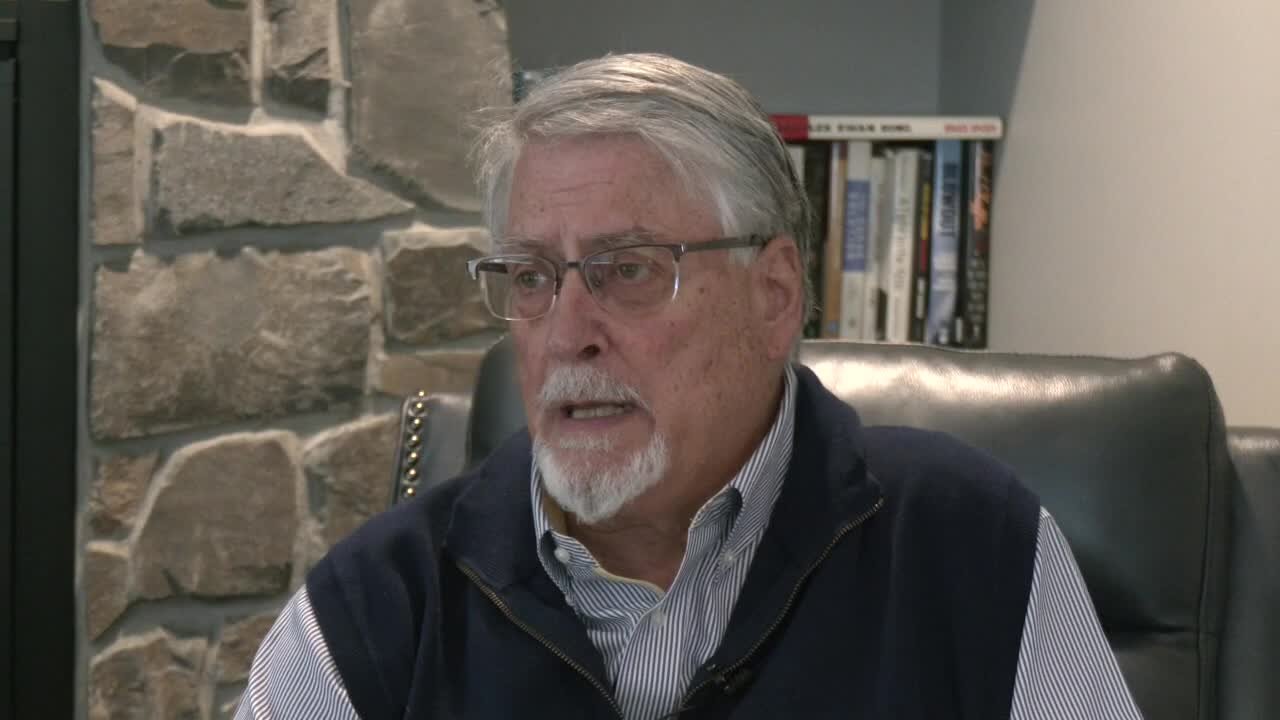AI Research
NVIDIA aims to solve AI’s issues with many languages

While AI might feel ubiquitous, it primarily operates in a tiny fraction of the world’s 7,000 languages, leaving a huge portion of the global population behind. NVIDIA aims to fix this glaring blind spot, particularly within Europe.
The company has just released a powerful new set of open-source tools aimed at giving developers the power to build high-quality speech AI for 25 different European languages. This includes major languages, but more importantly, it offers a lifeline to those often overlooked by big tech, such as Croatian, Estonian, and Maltese.
The goal is to let developers create the kind of voice-powered tools many of us take for granted, from multilingual chatbots that actually understand you to customer service bots and translation services that work in the blink of an eye.
The centrepiece of this initiative is Granary, an enormous library of human speech. It contains around a million hours of audio, all curated to help teach AI the nuances of speech recognition and translation.
To make use of this speech data, NVIDIA is also providing two new AI models designed for language tasks:
- Canary-1b-v2, a large model built for high accuracy on complex transcription and translation jobs.
- Parakeet-tdt-0.6b-v3, which is designed for real-time applications where speed is everything.
If you’re keen to dive into the science behind it, the paper on Granary will be presented at the Interspeech conference in the Netherlands this month. For the developers eager to get their hands dirty, the dataset and both models are already available on Hugging Face.
The real magic, however, lies in how this data was created. We all know that training AI requires vast amounts of data, but getting it is usually a slow, expensive, and frankly tedious process of human annotation.
To get around this, NVIDIA’s speech AI team – working with researchers from Carnegie Mellon University and Fondazione Bruno Kessler – built an automated pipeline. Using their own NeMo toolkit, they were able to take raw, unlabelled audio and whip it into high-quality, structured data that an AI can learn from.
This isn’t just a technical achievement; it’s a huge leap for digital inclusivity. It means a developer in Riga or Zagreb can finally build voice-powered AI tools that properly understand their local languages. And they can do it more efficiently. The research team found that their Granary data is so effective that it takes about half the amount of it to reach a target accuracy level compared to other popular datasets.
The two new models demonstrate this power. Canary is frankly a beast, offering translation and transcription quality that rivals models three times its size, but with up to ten times the speed. Parakeet, meanwhile, can chew through a 24-minute meeting recording in one go, automatically figuring out what language is being spoken. Both models are smart enough to handle punctuation, capitalisation, and provide word-level timestamps, which is required for building professional-grade applications.
By putting these powerful tools and the methods behind them into the hands of the global developer community, NVIDIA isn’t just releasing a product. It’s kickstarting a new wave of innovation, hoping to create a world where AI speaks your language, no matter where you’re from.
(Photo by Aedrian Salazar)
See also: DeepSeek reverts to Nvidia for R2 model after Huawei AI chip fails
Want to learn more about AI and big data from industry leaders? Check out AI & Big Data Expo taking place in Amsterdam, California, and London. The comprehensive event is co-located with other leading events including Intelligent Automation Conference, BlockX, Digital Transformation Week, and Cyber Security & Cloud Expo.
Explore other upcoming enterprise technology events and webinars powered by TechForge here.
AI Research
PPS Weighs Artificial Intelligence Policy

Portland Public Schools folded some guidance on artificial intelligence into its district technology policy for students and staff over the summer, though some district officials say the work is far from complete.
The guidelines permit certain district-approved AI tools “to help with administrative tasks, lesson planning, and personalized learning” but require staff to review AI-generated content, check accuracy, and take personal responsibility for any content generated.
The new policy also warns against inputting personal student information into tools, and encourages users to think about inherent bias within such systems. But it’s still a far cry from a specific AI policy, which would have to go through the Portland School Board.
Part of the reason is because AI is such an “active landscape,” says Liz Large, a contracted legal adviser for the district. “The policymaking process as it should is deliberative and takes time,” Large says. “This was the first shot at it…there’s a lot of work [to do].”
PPS, like many school districts nationwide, is continuing to explore how to fold artificial intelligence into learning, but not without controversy. AsThe Oregonian reported in August, the district is entering a partnership with Lumi Story AI, a chatbot that helps older students craft their own stories with a focus on comics and graphic novels (the pilot is offered at some middle and high schools).
There’s also concern from the Portland Association of Teachers. “PAT believes students learn best from humans, instead of AI,” PAT president Angela Bonilla said in an Aug. 26 video. “PAT believes that students deserve to learn the truth from humans and adults they trust and care about.”
Willamette Week’s reporting has concrete impacts that change laws, force action from civic leaders, and drive compromised politicians from public office.
Help us dig deeper.
AI Research
Artificial intelligence investing is on the rise since 2013

FARGO, N.D. (KVRR) — “Artificial intelligence is one of the big new waves in the economy. Right now they say that artificial intelligence is worth about $750 billion in our economy right now. But they expect it to quadruple within about eight or nine years,” said Paul Meyers, President and Financial Advisor at Legacy Wealth Management in Fargo.
According to a Stanford study, since 2013, the United States has been the leading global AI private investor. In 2024, the U.S. invested $109.1 billion in AI. While on a global scale, the corporate AI investment reached $252.3 billion.
“Artificial intelligence is already in our daily lives. And I think it’s just going to become a bigger and bigger part of it. I think we still have control over it. That’s a good thing. But artificial intelligence is helpful to all of us, regardless of what industry you’re in, and we need to be ready for it,” said Meyers.
Recently, Applied Digital has seen a dip in its stock by nearly 4%. The company’s 50-day average price is $12.49, and its 200-day moving average price is $9.07. Their latest report in July reported their earnings per share being $0.12 for the quarter.
“This company has grown quite a bit as a stock this year. For investors in this company, they’re up ninety-four percent this year. And I would say that you know there’s some positives and some negatives, some causes for concern, and some causes for optimism, it’s not a slam dunk,” said Meyers.
At the city council meeting on Tuesday night, Don Flaherty, Mayor of Ellendale, shared that they had not received any financial benefits from Applied Digital and won’t see any until 2026. While Harwood has yet to finalize their decision on the proposal.
AI Research
How the next wave of workers will adapt as artificial intelligence reshapes jobs

AI is reshaping the workplace as companies are turning to it as a substitute for hiring, raising questions about the future of the job market. For many, there is uncertainty about the jobs their children will have. Robert Reich, the Labor Secretary under President Clinton and professor at Berkeley, joined Geoff Bennett to discuss his new essay, “How your kids will make money in a world of AI.”
-

 Business5 days ago
Business5 days agoThe Guardian view on Trump and the Fed: independence is no substitute for accountability | Editorial
-
Tools & Platforms3 weeks ago
Building Trust in Military AI Starts with Opening the Black Box – War on the Rocks
-

 Ethics & Policy1 month ago
Ethics & Policy1 month agoSDAIA Supports Saudi Arabia’s Leadership in Shaping Global AI Ethics, Policy, and Research – وكالة الأنباء السعودية
-

 Events & Conferences4 months ago
Events & Conferences4 months agoJourney to 1000 models: Scaling Instagram’s recommendation system
-

 Jobs & Careers2 months ago
Jobs & Careers2 months agoMumbai-based Perplexity Alternative Has 60k+ Users Without Funding
-

 Education2 months ago
Education2 months agoVEX Robotics launches AI-powered classroom robotics system
-

 Funding & Business2 months ago
Funding & Business2 months agoKayak and Expedia race to build AI travel agents that turn social posts into itineraries
-

 Podcasts & Talks2 months ago
Podcasts & Talks2 months agoHappy 4th of July! 🎆 Made with Veo 3 in Gemini
-

 Podcasts & Talks2 months ago
Podcasts & Talks2 months agoOpenAI 🤝 @teamganassi
-

 Education2 months ago
Education2 months agoMacron says UK and France have duty to tackle illegal migration ‘with humanity, solidarity and firmness’ – UK politics live | Politics



















